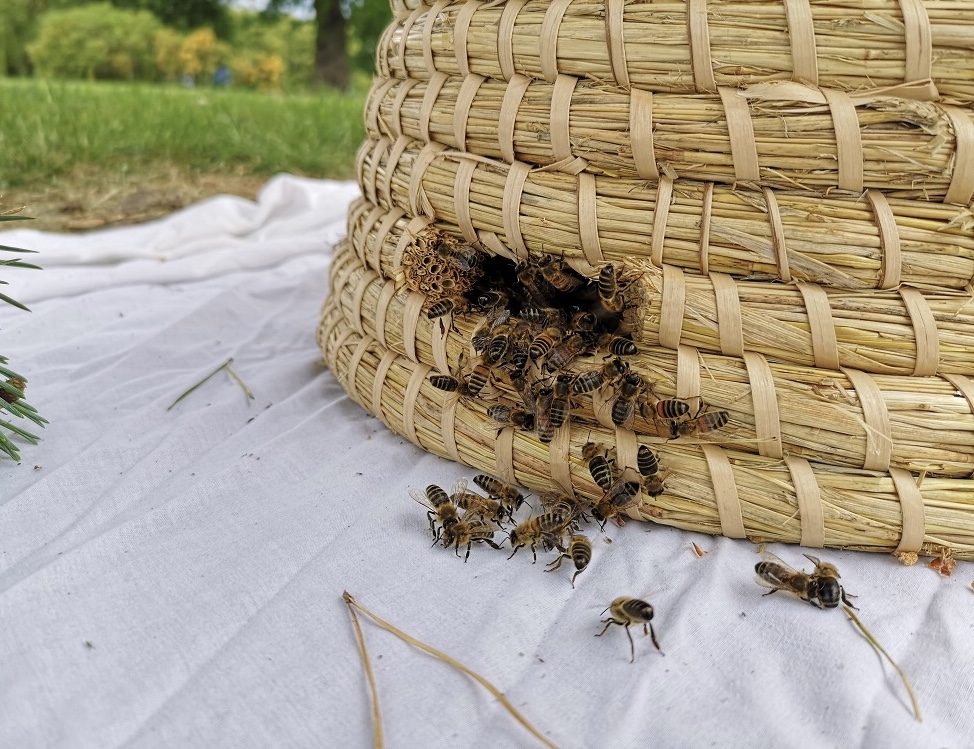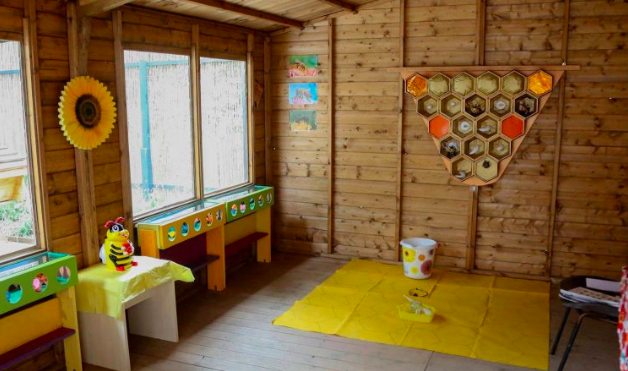Our Projects Assistant Charlotte discusses the importance of pollinators and our Bee Mindful education project in Northfield.
It is easy to be detached from common pollinator species. They seem to appear in the Summer months, and either take a starring role in BBQ gatherings or fly around bright lights and buddleia plants. Apart from these interactions, our lives often feel separate. Yet, more and more reports highlight a decline in pollinator populations and the implications of pollinator decline on humanity. The culprit of the decline is human behaviour, be it urbanisation causing a lack of forage and habitats or pollution including pesticides, affecting pollinator health. These reports are anything but disconnected from our livelihoods. Pollinator populations are fundamental to the health of people and planet; we rely on them to pollinate our food crops, by moving pollen from one plant to another, fertilising the plants so they can produce flowers, fruit, vegetables and seeds. If all pollinators were to become extinct we would risk affecting the earth’s delicate food system. The question is, how can we better connect people and pollinators so we can grow a collective sense of care for pollinators, and as a result continue creating food for humanity?

For the past couple of years, Allen’s Cross Community Garden has been home to honeybees as part of ecobirmingham’s Bee Mindful project. The aim of the project is to increase understanding of the importance of pollinators through education about honey bees. Workshops are predominantly delivered to KS1 and KS2 children, but as a byproduct, the colonies have bought a sense of wellbeing and togetherness to the garden community. The comings and goings of the bees have provided an integral point of conversation (similar to observations about the weather), a spectacle to stop and watch and a therapeutic tool for mindfulness and relaxation. I have realised that the introduction of the honeybees has been a vehicle for community cohesion – the bees have become a collective interest and responsibility. While not every garden attendee is trained to handle bees, most are fascinated to learn more and ask after the bees in the same way you might of someone’s relatives. To harness this collective sense of responsibility is to harness the power to have further conversations regarding threats to pollinators, such as climate change, air pollution, chemical pesticides, as well as promote the role and importance of lesser-known pollinators, for example species of solitary bees, wasps and hoverflies. The result is an examination into how we can lessen our impact on the planet in order to benefit biodiversity.
Conversations about the honeybees at Allen’s Cross just scratch the surface of a web of complexity surrounding environmental issues. As with any system, there are forces driving us to protect pollinators, such as the importance of pollination, biodiversity and wild plant growth, and balancing forces perpetuating the current system to continue, such as social norms like flying and driving cars exacerbating climate change and air pollution, and farmers using chemical pesticides to enable us to have reliable food crops. I believe that the more conversations we have, the more people will respond to the driving forces. Yet, it is also important that within these complex systems we are able to map and identify spaces for action and infiltrate these cracks with simple interventions. Bee Mindful does this by promoting ways to protect pollinator species, such as:
- plant flowers for pollinators
- build a bug hotel
- avoid using pesticides
- leave wild patches in the garden.
These are easy actions that can be taken immediately and quickly creates a caring environment that joins together people and pollinators.

It amazes me how the apiary at Allen’s Cross has inspired conversation about environmental issues. The tangibility of the honeybees has influenced the garden space and introduced new relationships between bees and humans, as well as conversation about creating an alternative future. This geography of encounter has inspired joy, care and connectivity; an attachment to pollinators that has sparked so much more than I could have imagined.
The bees are now taking a well-deserved rest over Winter. Bee Mindful will return in Spring 2020 with more bee education sessions. If you would like more information about the sessions, please email [email protected]